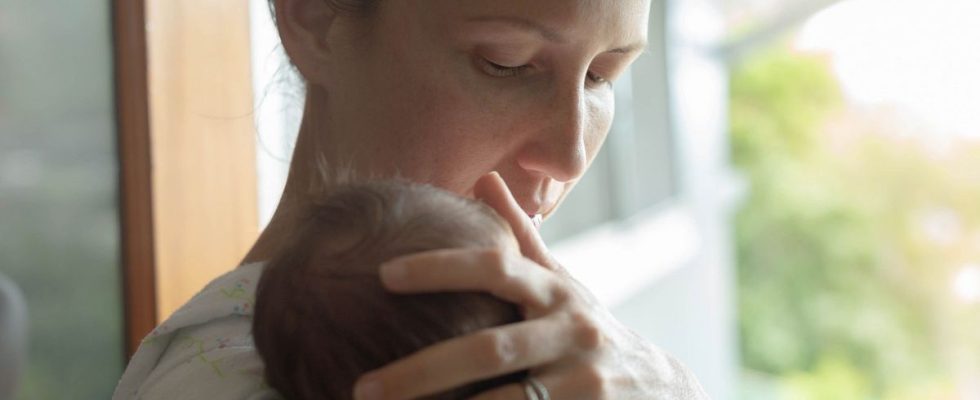Published on
Updated
Reading 3 min.
Using PMA to have a child on your own: a project now accessible to thousands of women in France, often single and close to forty, but also sometimes younger, driven by the desire to separate marriage and motherhood.
“JI have my whole life to find love, but not to become a mother“, testifies to AFP Solenn, 36 years old, single, registered on the waiting list to benefit from medically assisted procreation (AMP or PMA) with sperm donation.
More and more women are embarking on solo projects
This executive from Brest (West), who does not wish to give her last name, has “mourned the project of having a child together” and is now looking forward to embarking on future motherhood alone. “Serene”, she impatiently awaits the phone call which will tell her that it is her turn to benefit from a gamete donation.
Like her, many women are embarking on this process alone. An option made possible in France by the bioethics law of 2021, which also opened medically assisted procreation to female couples.
This approach was already possible for these profiles of women in around ten European countries, including Belgium, Spain and the Netherlands, to which French women had previously turned. It is still not legal in some European countries, such as Italy.
Since the legalization of the process in France, the demand for PMA has increased eightfold, leading to an extension of waiting times, according to the Biomedicine Agency, in the midst of a communications campaign to recruit new gamete donors.
“A revolution, more than an evolution”
The organization was surprised by the “very high proportion” of single women among PMA candidates: they represented 40% of the 6,200 people waiting for the procedure, at the end of March 2023, compared to 41% of women in homosexual couples and 19% in heterosexual couples.
At Tenon Hospital in Paris, the proportion of single women is even higher. More than 800 of them came forward in 2022, compared to 299 women in a relationship with a woman and 76 in a relationship with a man.
“We quickly realized that it was not an evolution, but a revolution“, comments Professor Rachel Levy, head of the Reproductive Biology-Cecos department at Tenon hospital. The establishment has set up discussion groups dedicated to single women candidates for maternity so that they can “meet people on the same journey“.
Note, these single women are older on average (37.3 years) than those in heterosexual couples (34.5 years).
In Lille (North), the center for the study and conservation of human eggs and sperm (Cecos, commonly called “sperm bank”) also notes that the single women it receives are on average older than those in couples. .
“The majority are women who would ideally have liked to have a child within a couple, but who are single, getting older and realize that the biological clock is ticking.“, indicates to AFP Bérengère Ducrocq, head of this center. Those over 38 represent 35% of candidates for solo PMA, those under 29, 5%.
NO to diets, YES to WW!
Requests that challenge
“We discuss a lot between professionals about the requests that concern us, for example those of very young women, barely out of adolescence.“, sometimes very mature in their project, but not always, specifies Bérengère Ducrocq.
French law allows women aged 18 to 45 to benefit from PMA.
Young, virgin, asexual women… For Margaux Gandelon, president of the Mam’ensolo association, the profiles of single women are “more diverse than professionals expected“.”Asexual women, for example, are often younger because they do not project themselves into the couple“, she explains to AFP.
However, young women are not always well received in the centers, some even refuse to make appointments for those under 29, warns the association.
To still have a child, they will then “go through other circuits: go abroad or turn to artisanal insemination“, by requesting a sperm donation from an individual, “with all the security, health and legal risks that this entails“, warns Margaux Gandelon.
